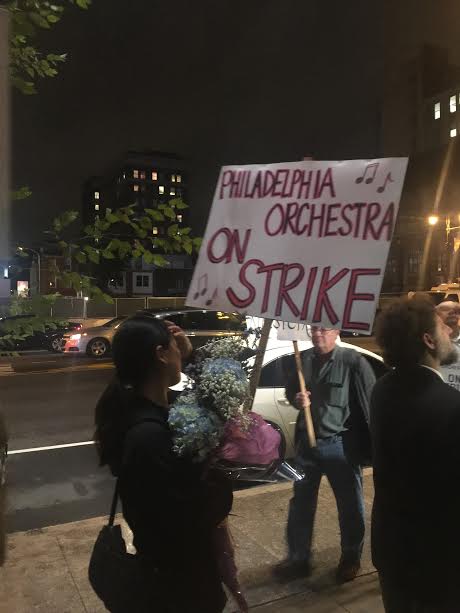A fourth US orchestra is heading for a strike
mainFirst Fort Worth. Then Pittsburgh. Briefly, Philadelphia.

Now the Pacific Symphony is heading for walkout.
Here’s the players’ latest bulletin:
Santa Ana, California
October 26, 2016
The Musicians of the Pacific Symphony have unanimously rejected the employer’s recent contract offer and reaffirmed the strike authorization they had previously granted to their union leadership. Bob Sanders, President of Orange County Musicians’ Association, Local 7 of the American Federation of Musicians states “Our bargaining team wanted to reassess the position of the bargaining unit with their full knowledge of where the parties stand at the present time. The orchestra offered its support resoundingly.”
Local 7 and Pacific Symphony management have been bargaining since July to renew their Labor Agreement, which expired August 31, 2016. At issue is the musicians desire to have a predictable schedule, a guaranteed annual wage, and a contract that increases work offered. Pacific Symphony, the nation’s 22nd largest symphony orchestra by size of annual budget, currently operates with annual expenditures of approximately $20 million while providing less work and a lower wage for musicians than any other large orchestra around the country.
According to Local 7 bargaining committee chairman and Pacific Symphony violist Adam Neeley, “Pacific Symphony musicians, when compared with their colleagues who play in orchestras of similar size and scope, are the only orchestral musicians in the country who don’t have the assurance from year to year of a fixed schedule or annual wage. While our employer has offered a form of annual service guarantees, the offer on the table fails to grow work in the coming years, leaves musicians guessing when they might be called for services, and would leave the musicians exposed to possible cost-saving cuts.”…
The parties have no bargaining dates set. According to Neeley, “we will perform the upcoming concert with the Pacific Chorale out of respect for our longtime relationship with them. After that, we cannot ensure how much longer we can continue to perform without a contract. We feel strongly that these serious concerns must begin to be addressed.”





If mgmt can’t/won’t give the musicians FT work at a decent salary, then a fixed schedule is imperative so that the musicians can teach, sub, and so forth. We’re not talking fast food here.
Too bad Mozart didn’t try that strategy…
If I remember correctly, the Pacific Symphony is a “per service” orchestra, not a permanent contract orchestra. The musicians are hired (and paid) as needed. If they’re doing an all Mozart concert, for example, the trombones and tuba are not working. There can be no “guaranteed annual wage.”
Correct me if I am wrong, but as far as I know there is no law that forbids this or any other orchestra to change from “per service” to “guaranteed annual wage”. Or perhaps, if such a switch is an absolute impossibility for the management, they might instead perhaps offer a much higher compensation rate that would convince the musicians to agree. Everything is negotiable.
If you’re a per service orchestra manager, you would never want to offer a guaranteed annual wage but you could offer principals a certain number of guaranteed services in order to make sure you have the best players.
There’s always this situation amongst free-lance musicians: they want to have “guaranteed” work but they also want to be able to come and go as they please if a more lucrative gig is offered. Unfortunately, you can’t have it both ways. Take it from a guy who has played in per service orchestras and who has managed per service orchestras.
Some (or many?) may “want” guaranteed salary for optional work, but everyone (even musicians!) understands that such guaranteed contract is only possible when availability for every service covered by that contract is obligatory. So the management has two directions of negotiating available to them, as long as they are interested in maintaining a high quality orchestra.